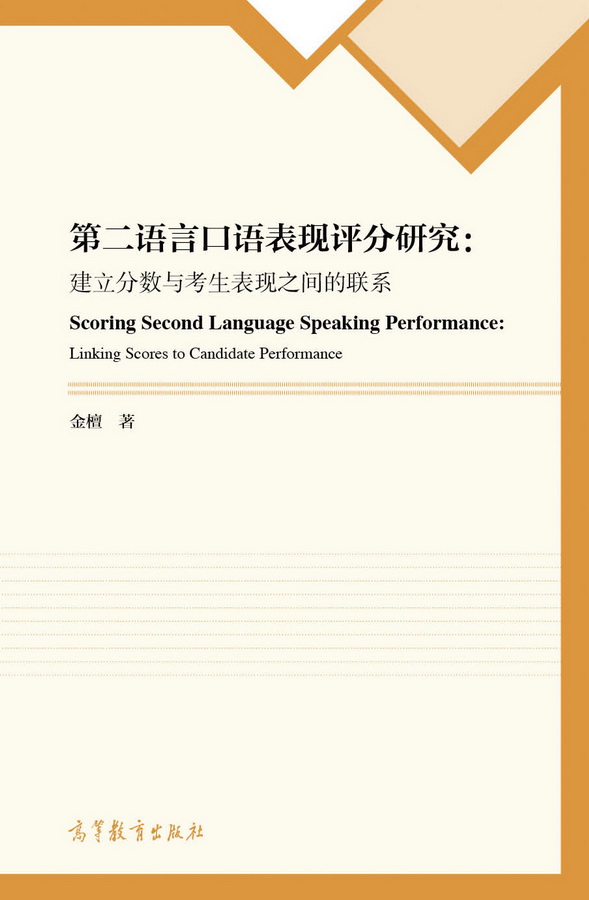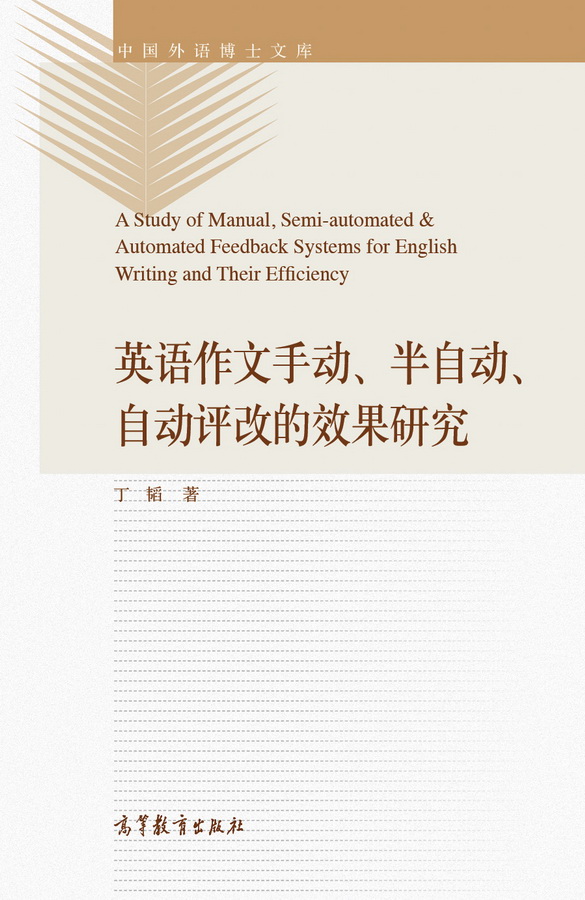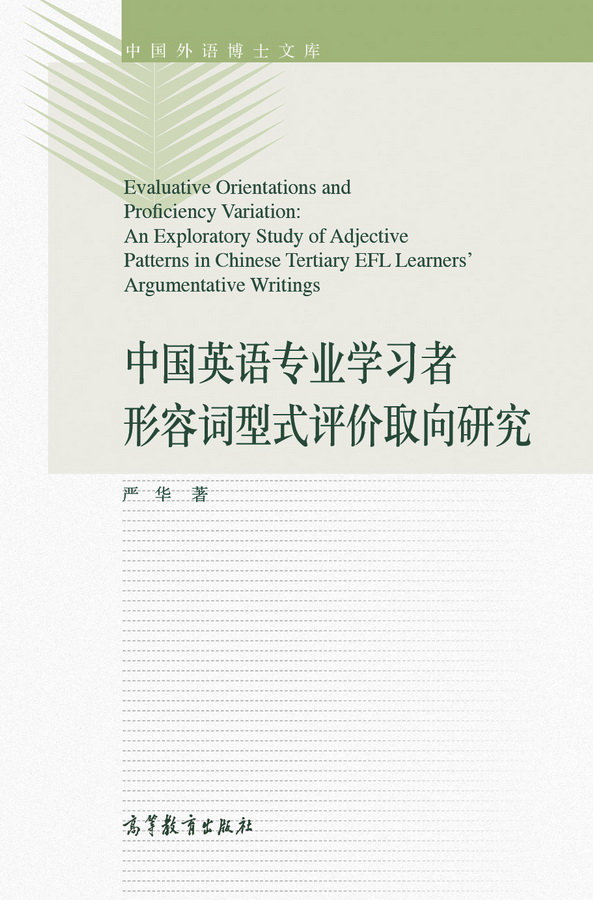机构话语中的身份维持与建构——英国导师和中国学生学术交谈的多模式话语分析
作者: 董平荣
出版时间:2012-01-18
出版社:高等教育出版社
- 高等教育出版社
- 9787040341898
- 1
- 242848
- 平装
- 16开
- 2012-01-18
- 519
- 393
《机构话语中的身份维持与建构:英国导师和中国学生学术交谈的多模式话语分析》主要包括Discourse and Identity、Methodology、The Present Study、COUective Identities and Social Structures等多种对话模式话语分析。
Chapter1 Discourse and ldentity
1.1 Introductlon
1.2 Identity from a Variationist Perspective
1.2.1 Identity as aBroad Social Category
1.2.2 Identity in Local and Ethnographlc Context
1.3 Identity from Socio-psychological,Cultural,and Ideological Perspective
1.3.1 Identity as Self-categorisation and Discursive Action
1.3.1 Identity in Cross-cultural Communication
1.3.3 Identity in Language Beliefs
1.4 Identity and Interaction
1.4.1 Emergence
1.4.2 Positionality
1.4.3 Indexicality
1.4.4 Relationality
1.4.5 Partialness
1.5 Summary
Chapter 2 Methodology
2.1 CA and Institutional Talk
2.1.1 Origin and Basic Concepts of CA
2.1.2 Three Distinctive Features of Institutional Talk
2.1.3 Six Dimensions of Analysing Institutional Talk
2.2 CDA and Textual Analysis
2.2.1 Basic Theme and Goal of CDA
2.2.2Nine Analytic Categorles in Discourse Analysis
2.3 Combining CA and CDA
2.3.1 A Continuum of CA's Dimensions and CDA's Categories
2.3.2 Arguments for Combining CA and CDA
2.4 Combining Ethnogfraphic Accounts and Discourse Analysis
2.5 Combining Qualitative and Quantitative Analysis
2.6 Summary
Chapter 3 The Present Study
3.1 International Students in British Higher Education Institutions
3.2 Chinese Smdents in a British University
3.3 The survey
3.4 The Interviews
3.5 Supervision Sessions
3.6 Research Questions
3.7 Summary
Chapter 4 collective Identities and Social Structures
4.1 Supervlsor as Organiser versus smdent as Follower
4.1.1 Opening:Greeting or Goal-orientated Introduction
4.1.2 Evaluation Process:Topic Organisation
4.1.3 Pre-closing and Closing
4.2 Supervisor as Questioner Versus Student a Answerer
4.2.1 Yes-no Questions
4.2.2 Wh-questions
4.3 Supervrvsor as Evaluator Versus Student as Evaluated
4.3.1 Response to Answer
4.3.2 Positive Evaluation
4.3.3 Negative Evaluation
4.4 SuperVisor as Advisor Versus Student as Advisee
4.5 Supervisor as Native Speaker Versus Student as Non-native Speaker
4.5.1 Discourse Markers
4.5.2 Fluency and Accuracy in spoken English
4.6 Summary
Chapter 5 Supervising and Participating Styles
5.1 Supervisors as Individual Academics
5.1.1 Styles of organising Topics
5.1.2 Styles of Questioning Students
5.1.3Styles of Evaluating
5.1.4 Styles of Advising on improvements
5.1.5Styles of Representing the Academic Institution
5.1.6 Distinctive Supervising styles
5.2 StudentS as Individual Participants
5.2.1 Student 1:"I don't know how to say"
5.2.2 Student 2 and Student 9 Speak Little
5.2.3 Student 3 and Student 4: "oh" and "mhm"
5.2.4 Student 7 and Student 8: "Iknow" and "Iget it"
5.2.5 Student 5 and Student 6: Active Participants
5.2.6 Differences Matter
5.3 Summary
Chapter 6 Conclusion
6.1 Summary of the Findings
6.2 Limitations of the Study
6.3 Implications
6.3.1 Teaching Spoken-English in China
6.3.2 Authentic Data for Second Language Acquisition
6.3.3 Academic Supervision Sessinos as Institutional Discourse
6.3.4 Interpreting Cultures in lntercultural Interaction
Bibliography
Appendixes
Appendix 1 Transcript for Supervision Session l
Appendix 2 Transcript for Supervision Session 2
Appendix 3 Transcript for Supervision Session 3
Appendix 4 Transcript for Supervision Session 4
Appendix 5 Transcript for Supervision Session 5
Appendix 6 Transcript for Supervision Session 6
Appendix 7 Transcript for Supervision Session 7
Appendix 8 Transcript for Supervision Session 8
Appendix 9 Transcript for Supervision Session 9
Appendix 10 Transcript for Supervision Session l0
Appendix 11 Transcript for Supervision Session l1
Appendix 12 Survey on Englist in your Dailt and Academic Life









